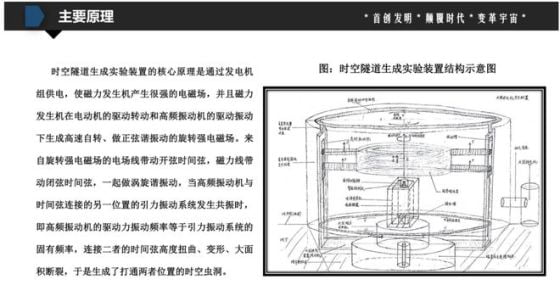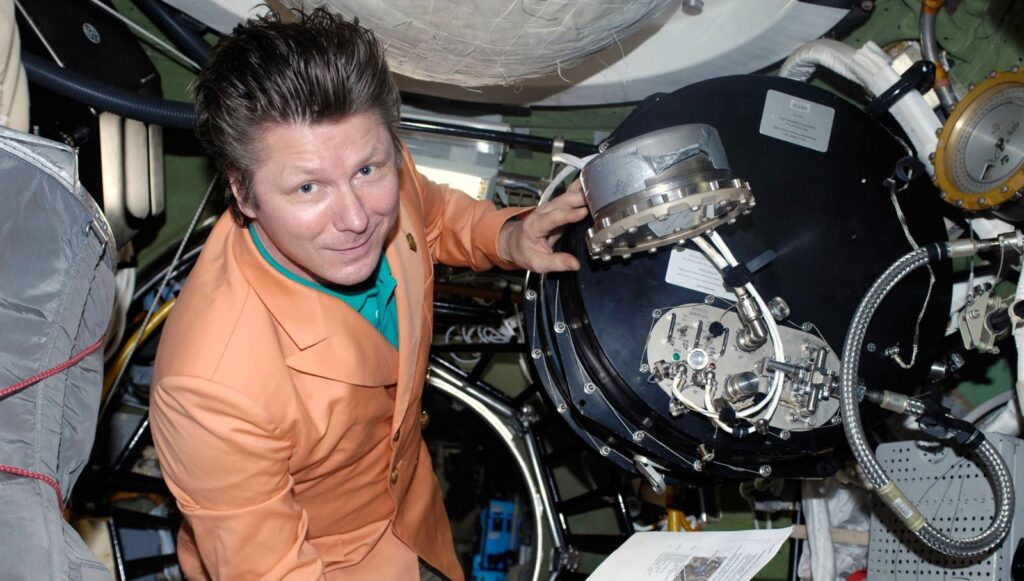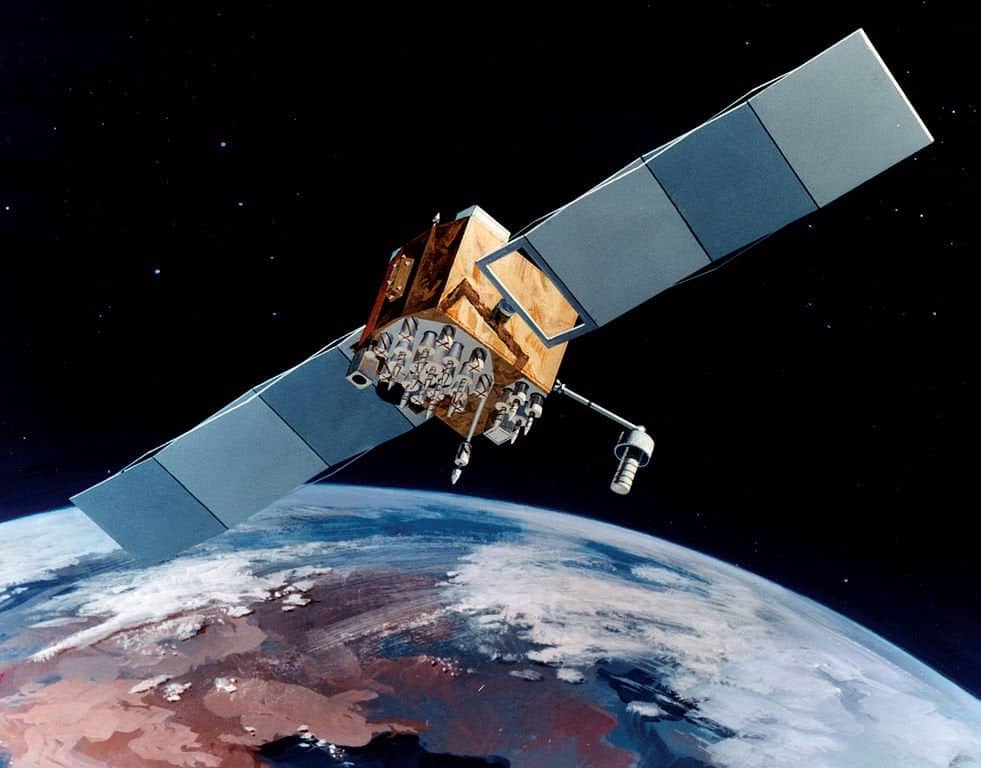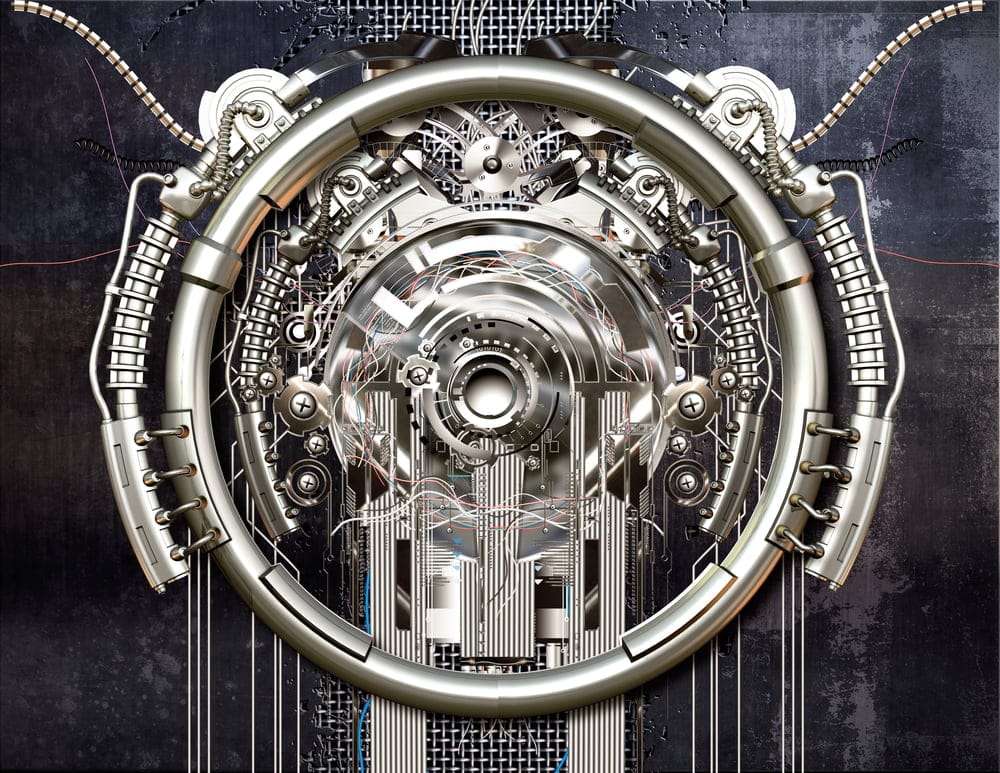There's been quite a bit of commotion on social media this week over a rather bizarre story. The Institute of High Energy Physics of the Chinese Academy of Sciences could not help but issue an official statement to deny that it is in the process of building a time machine.
To be precise, they have circulated some rather suspicious documents. Documents reporting on the collaboration between the Institute of High Energy Physics of the Chinese Academy of Sciences and a private technology company to build an "experimental space-time tunnel generation device."

Documents
A business plan accompanied by a leaked Powerpoint presentation offered promising details without revealing the science or specifics of the theory behind this technology. The presentation said they were a few months away from the launch of this device, and the project looked promising.
Physicist Gao Kun's approval was even mentioned.
What's fake? A lot, at a guess. It is not clear why China has bothered to issue a denial, but from the statement we learn that obviously no such project is currently in the pipeline. Moreover, Gao Kun is yes a researcher in geophysics at Princeton, but it has nothing in common with this matter. In short, many nerd jokes and memes on social media, but no confirmations. Indeed, denials.
The original question is still worth pondering, though: is it possible to travel through time?
The answer is: yes, and it always happens. Your humble editor doesn't want to tell you how to build a DeLorean, but there are some basic notions that are understandable even to me.
It's true! Anyone reading this post is a time traveler. We are all traveling forward in time at the speed of one second per second, or at least that's how we perceive it.
The trick is being able to reverse that motion, or at least alter the speed.
Four steps into the future
As it turns out, time travel happens regularly, and we have evidence of this thanks to Albert Einstein's well-known work. The speed with which time passes depends on the physical speed with which you move in space.

The Russian cosmonaut Gennady Padalka he is known for being one of the most skilled time travelers on the planet: he was 0,0227 seconds in the future to have spent so much time orbiting the Earth at thousands of kilometers per hour compared to the rest of us stuck on the surface.

Even our satellites always travel in time. During the early days of global positioning systems (GPS), scientists and engineers working on the nascent technology realized that it wouldn't work without taking into account the fact that their satellites were moving a little ahead in time compared to devices that received data on the ground.
Perhaps an even more extreme example comes from the particles launched into the LHC, the Geneva particle accelerator. In there the particles accelerate to over 99% of the speed of light, so they travel into the future every time the system is activated.
No DeLorean, then?

Given current circumstances and scientific literature, the time travel we see in movies is far from possible.
The debunked Chinese project hints at something that “could extend life by using Albert Einstein's theory of general relativity to distort space-time.” From the descriptions it seems like a way to force humans into a prolonged period of "hibernation" before long space journeys.
Of course, when you wake up it will seem like you have traveled into the future, but it's a deception, right? All that time will have passed: we simply wouldn't be aware of it. Nothing else.
Waiting for the space-time tunnel
Until someone figures out how to change a person or object's position on the timeline in a way other than just going faster than everyone else, "Back to the Future" isn't going to happen. Most physicists involved on the topic seem to agree, except Ron Mallet.
Traveling back in time seems to be largely considered impossible, at least according to our current understanding of the universe. There are many theories involving concepts such as the use of a wormhole to handle this, but you'll find your own.


